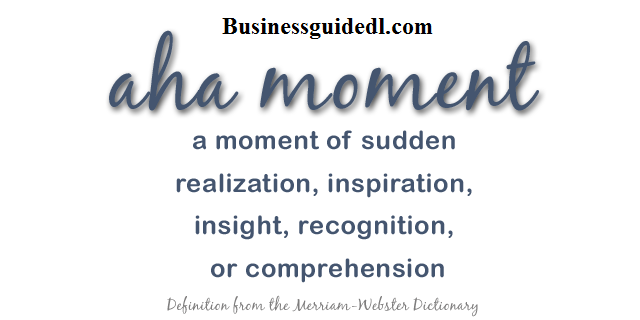

This is in contrast to analytical problem solving which involves the use of a systematic process or simply logical reasoning to arrive at a solution to a problem. It should be noted that insights, while they do suddenly merge into one’s stream of consciousness, are proceeded by unconscious processing to arrive at the insight. Insight, commonly referred to as an “aha moment,” has been defined as a sudden, conscious change in a person’s representation of a stimulus, situation, event, or problem. Firstly, there are definitional differences between the two. Some of the earliest research on insight sought to conclude whether there really was a difference between solving a problem via insight versus solving a problem via a heuristic driven type of problem solving methodology. Insight versus analytical problem-solving Research by cognitive psychologists and cognitive neuroscientists has shown that moments of insight are merely the result of the brain making connections between weakly and strongly activated bits of information, and then bringing them to consciousness.Ģ. Insights may appear suddenly, but are preceded by incremental unconscious processing. Insight has been defined as any sudden comprehension, realization, or problem solution that involves a reorganization of the elements of a person’s mental representation of a stimulus, situation, or event to yield a nonobvious or nondominant interpretation. In fact, recent advances in neuroimaging technology have made it seem less mysterious than ever. Where do these whiffs of inspiration come from? Do they just magically pop in there, as if given to us by some muse? Or is there perhaps a more scientific explanation? Insight, or an “Aha!” moment as it is commonly referred to, is not mysterious at all. Undoubtedly, we have all had them, that moment of extraordinary clarity in which the solution to a difficult problem suddenly seems to just “pop in there.” Or perhaps it is a punchline to a joke that you all of a sudden get, or the perfect metaphor that suddenly comes into awareness. Thus, creativity is not considered synonymous with insight however, insight can certainly result in creative solutions during creative problem solving. Creativity, however, involves many cognitive processes, occurring in many regions of the brain and thus cannot be laterally localized as insight can. This conceptualization of insight naturally gives rise to comparisons between insight and creativity. Studies show that insight is not a sudden flash that comes from nowhere, but in fact is the result of the unconscious mind piecing together loosely connected bits of information stemming from prior knowledge and experiences and forming novel associations among them.


Recent advances in neuroimaging technology and neurophysiological techniques have allowed researchers an opportunity to hone in on the neural circuitry that governs insight, a phenomenon that has been theorized about by cognitive psychologists for over a century. Insight, often referred to as an “aha moment,” has been defined as a sudden, conscious change in a person’s representation of a stimulus, situation, event, or problem.


 0 kommentar(er)
0 kommentar(er)
